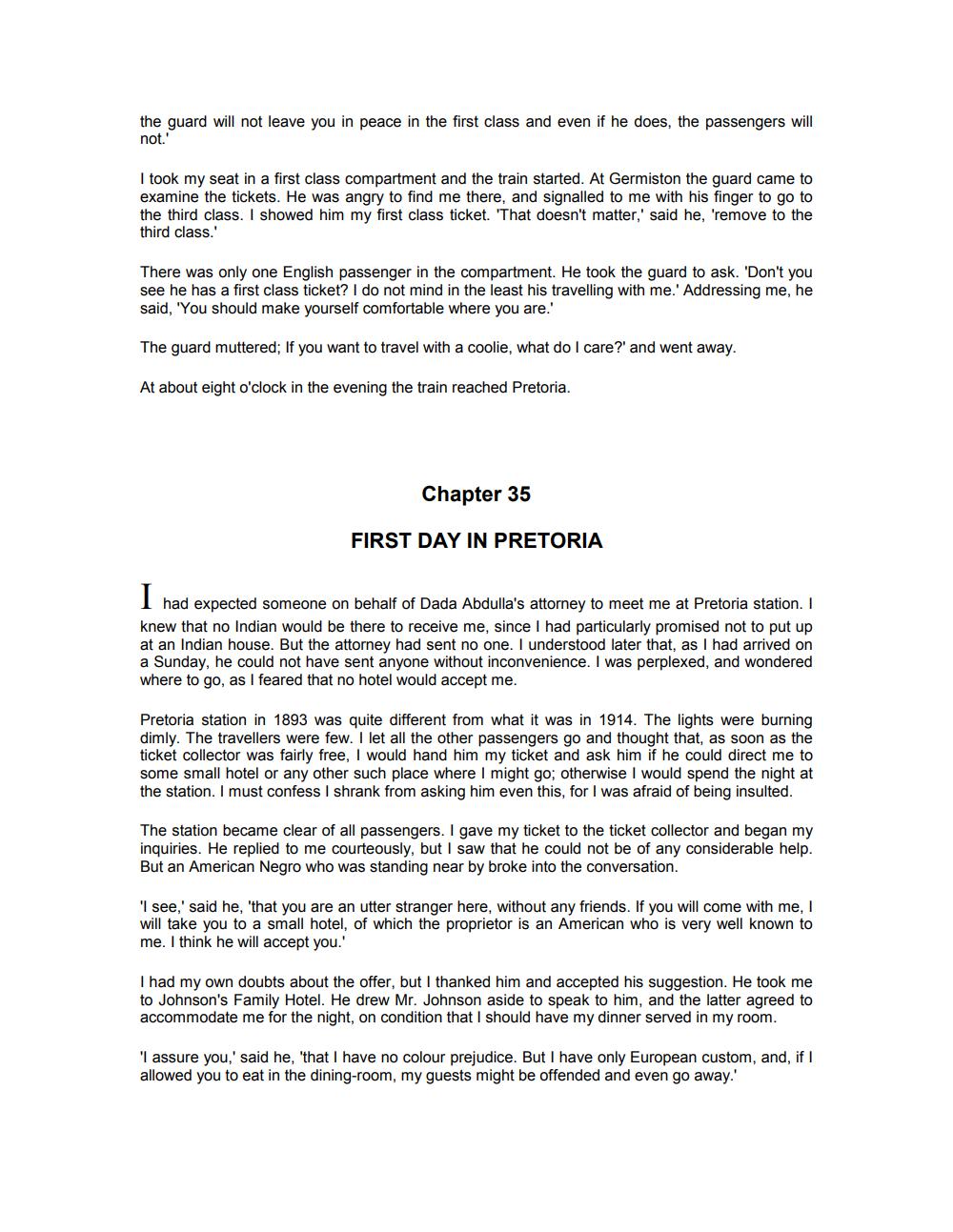________________
the guard will not leave you in peace in the first class and even if he does, the passengers will not.'
I took my seat in a first class compartment and the train started. At Germiston the guard came to examine the tickets. He was angry to find me there, and signalled to me with his finger to go to the third class. I showed him my first class ticket. 'That doesn't matter,' said he, 'remove to the third class.
There was only one English passenger in the compartment. He took the guard to ask. 'Don't you see he has a first class ticket? I do not mind in the least his travelling with me.' Addressing me, he said, 'You should make yourself comfortable where you are.'
The guard muttered; If you want to travel with a coolie, what do I care?' and went away.
At about eight o'clock in the evening the train reached Pretoria.
Chapter 35
FIRST DAY IN PRETORIA
I had expected someone on behalf of Dada Abdulla's attorney to meet me at Pretoria station. I knew that no Indian would be there to receive me, since I had particularly promised not to put up at an Indian house. But the attorney had sent no one. I understood later that, as I had arrived on a Sunday, he could not have sent anyone without inconvenience. I was perplexed, and wondered where to go, as I feared that no hotel would accept me.
Pretoria station in 1893 was quite different from what it was in 1914. The lights were burning dimly. The travellers were few. I let all the other passengers go and thought that, as soon as the ticket collector was fairly free, I would hand him my ticket and ask him if he could direct me to some small hotel or any other such place where I might go; otherwise I would spend the night at the station. I must confess I shrank from asking him even this, for I was afraid of being insulted.
The station became clear of all passengers. I gave my ticket to the ticket collector and began my inquiries. He replied to me courteously, but I saw that he could not be of any considerable help. But an American Negro who was standing near by broke into the conversation.
'I see,' said he, 'that you are an utter stranger here, without any friends. If you will come with me, will take you to a small hotel, of which the proprietor is an American who is very well known to me. I think he will accept you.'
I had my own doubts about the offer, but I thanked him and accepted his suggestion. He took me to Johnson's Family Hotel. He drew Mr. Johnson aside to speak to him, and the latter agreed to accommodate me for the night, on condition that I should have my dinner served in my room.
'I assure you,' said he, 'that I have no colour prejudice. But I have only European custom, and, if I allowed you to eat in the dining-room, my guests might be offended and even go away.'




